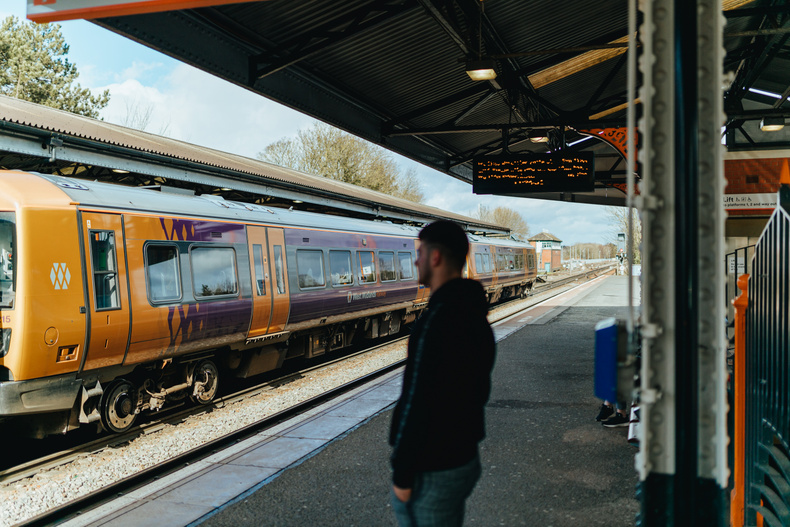Rail industry announces positive findings of university research into body-worn cameras

In a first long-term initiative of its kind, train companies have joined forces to prove the effectiveness and promote the use of Body Worn Video (BWV) across the rail industry to improve staff and customer safety.
Rail Delivery Group (RDG) and British Transport Police (BTP) have concluded a multi-year research project with the University of Cambridge, exploring the positive impacts of staff using body-worn video equipment.
The key finding from almost five years of data is that Body Worn Video can reduce the likelihood of assault by almost half (47 per cent), making it a crucial pillar of staff safety.
By acting as a visible deterrent, cameras can stop assaults from taking place and prevent violence towards frontline staff across the railway.
While this equipment forms an important part of being able to investigate reports of assault against staff, it also has a powerful impact in stopping assaults from happening in the first place, by acting as a visible deterrent.
The research also showed that while cameras can’t always stop assaults entirely, they do lead to a 30.7 per cent decrease in severe injuries, and a similar decrease (30.5 per cent) for low-level injuries.
Footage captured by cameras also has important benefits when it comes to securing justice for staff who’ve been the victims of assault.
British Transport Police prosecutors surveyed in the research reported that 67 per cent found BWV footage useful in more than 60 per cent of cases.
The rail industry’s wider staff safety project has achieved significant advancements in promoting uptake of BWV technology with an additional 4,350 cameras having been rolled out already by rail companies between 2021 and 2023.
The railway is projected to have over 12,200 cameras in operation by the end of January 2024, the majority of which will be used by multiple members of frontline staff.
The University of Cambridge’s research amongst frontline rail staff showed that they overwhelmingly support the use of Body Worn Video, with 80 per cent of respondents believing that train operators and Network Rail should roll out cameras fully.
Jacqueline Starr, chief executive, Rail Delivery Group, said: “Frontline rail staff provide all sorts of help and advice for our customers every day, and they should never face any kind of abuse.
“This technology is proven to be a powerful deterrent and with this rollout of body worn video across the railway we hope many more staff will benefit from this protection.”
Shaun Keeling, head of security at West Midlands Railway, said: “The effectiveness of railway staff using body-worn cameras is evident through the research conducted by Rail Delivery Group, British Transport Police and the University of Cambridge.
“We work closely with British Transport Police to disrupt and deter offenders, helping to protect colleagues and passengers across our network.
“Body-worn cameras are crucial to making colleagues and passengers feel safer at stations and on board our services, which is why we have rolled out 600 body-worn cameras in over 70 locations to our frontline staff.
“We will continue to equip our staff with body-worn cameras as they are proving to be very effective in preventing assaults and securing justice for victims.”
Staff safety is something that the railway takes extremely seriously and is constantly working to improve upon. Rail companies already have stringent measures in place aimed at preventing and addressing instances of violence and, together with BTP, support staff in securing justice when assaults do occur.
